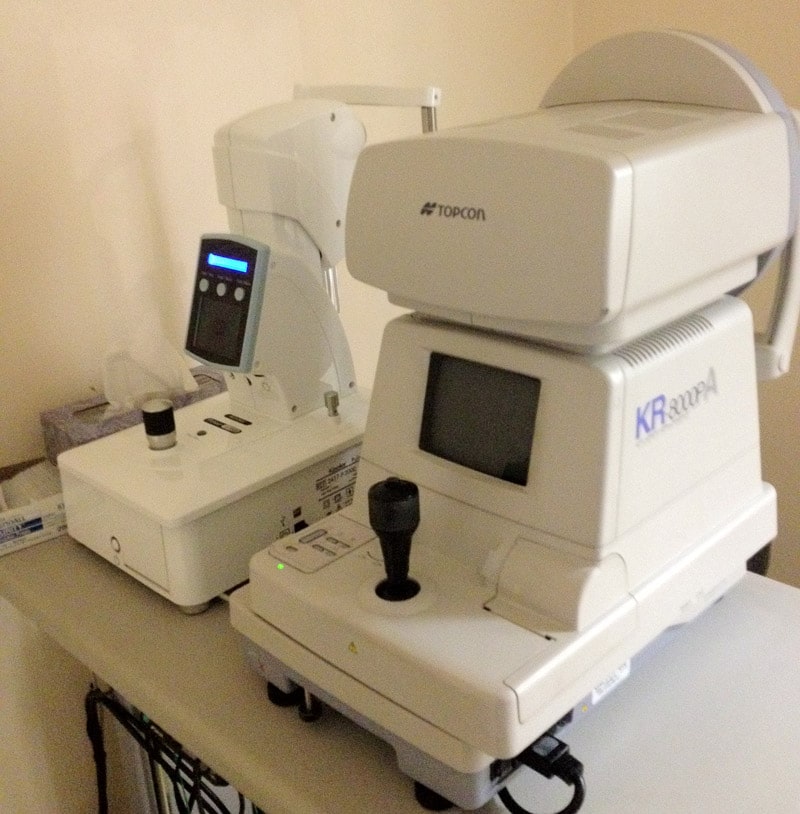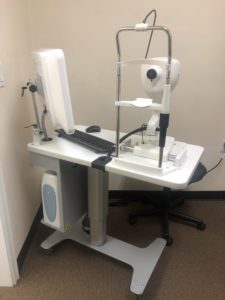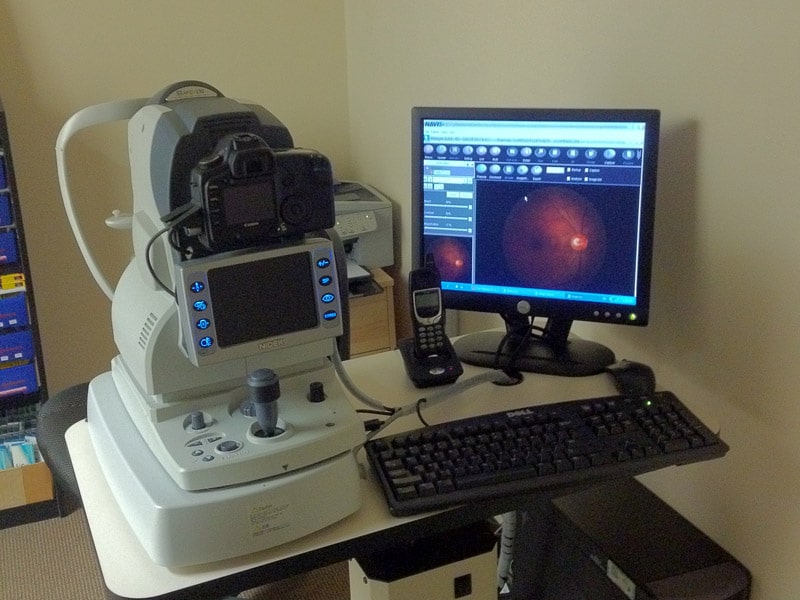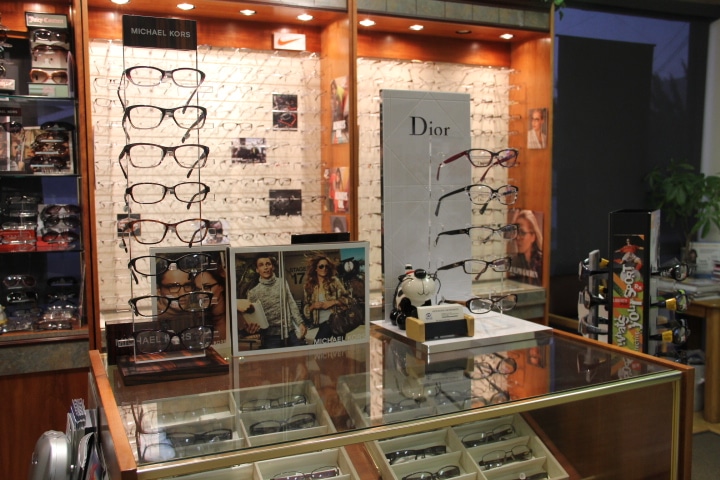IMPORTANT INFORMATION REGARDING COVID-19 READ HERE
A MEMBER OF THE Vision Source NETWORK
Comprehensive Eye Health Evaluation / Complete Eye Exam
- Home
- Services
- Complete Family Eye Care
- Comprehensive Eye Health Evaluation / Complete Eye Exam

Are you experiencing uneasy sensations in your eyes? Noticing a change in your visual capabilities or simply want a check-up? Our vision can change gradually with time; sometimes we don’t even notice that we’re squinting, straining or struggling! Regardless of how well you believe you can see, regular Comprehensive Eye Examinations are a crucial part of prophylactic eye care.
Dr. Su, a Board Certified Doctor of Optometry, provides personalized vision care using the latest digital examination equipment and techniques to detect and diagnose eye disorders and diseases. We are trained to provide comprehensive eye exams in English, Chinese, Taiwanese, and Spanish!




Our digital diagnostic equipment assist with these examinations:
Visual Acuity Test:
Visual acuity measurements assess the accuracy with which your eyes see. The process consists of reading charts (with letters and numbers in it) from a distance and detects the limits to which each eye can see. It accurately determines issues such as near-sightedness, farsightedness or astigmatism. You will also be asked to look through different lenses to identify which ones allow perfect vision.
The results are usually written as a fraction, for instance 20/40, where the top number denotes the standard distance at which testing is performed (20 feet), and the bottom number denotes the smallest letter size your eyes can read.
Color Blindness Test:
A color blind test is basically a device that is used by an eye doctor to evaluate if you have a color vision deficiency. We perform two tests: screening test (to identify if you have a color vision issue) or a detail-oriented quantitative test (to identify vision deficiency and severity or type of color blindness). This test will assess your perception of colors, which is crucially important on day-to-day bases, as mild color blindness may interrogate with everyday activities such as driving.
Ocular Motility (eye movement) Test:
This test is essential, especially for those who complain about double vision. We check for eye deviations, which could be a consequence of extraocular muscle dysfunction, strabismus, or palsy of the cranial nerves innervating the extraocular muscles. You will be asked to follow a target with both eyes as the target is moved. The eye doctor will examine the characteristics of your eye movement and determine if there is a problem.
Stereopsis (depth perception) Test:
Stereoscopic vision testing is crucial in detecting problems like Strabismus, Amblyopia, Stereopsis and Suppression. Stereovision is all about the way an eye might see an object from various angles, and combine those angles to give us a 3D image. This is a way to test your binocular and three-dimensional perception using a stereoscope. Eye is an integral perceptive tool that in many cases may be used in order to diagnose various brain dysfunctions. Occipital lobe is the part of the brain that is responsible of vision. Many abnormalities with this part of the brain may be diagnosed through procedures such as stereopsis.
Retinoscopy Test:
Retinoscope is used as a source of light and will be located to the side of your head. It will emit a beam of light into the patient’s pupil. This enables analysis of refractory potential of the eye and helps to measure the functionality of the patient’s visual organ. The movement of the light beam along the retinal base of the eye allows us to evaluate movement of the reflex.
Refraction:
Retinoscopy (also known as skiascopy) is a method to objectively identify the refractive issues of the eye (astigmatism, nearsighted, farsighted) and the need for glasses. The procedure is usually quick, simple, precise and needs minimal cooperation from the patient. This test will be used in order to determine the individual prescription. This test is mostly associated with the generic term “eye exam”. During this exam, you will observe the screen with specific letters or symbols. We will then change the lenses until a perfect prescription is found, which makes the vision clear and sharp.
Auto Refractors:
Auto refractor test will evaluate your eye’s ability to focus. The eye uses a lens in order to focus, and then focus is brought about through contraction of muscles that hold the lens in place in order to make more concave or convex. The machine will test your eye lens’ ability to focus efficiently through a series of images shown to you at a perceptively different distance. The prescription will be automatically calculated.
Slit Lamp Exam:
This involves the ophthalmologist having a close examination of the eye and some areas such as retina, iris, conjunctiva, sclera and retina in order to observe any abnormalities. The ophthalmologist will need to use a light microscope set at a low magnification for this procedure in order to evaluate your eye fully.
Glaucoma Test:
Glaucoma is a serious eye disease that is characterized by abnormal intraocular pressure. During a glaucoma test, the ophthalmologist will ask you to place your chin on special equipment and look at the image in the lens. The ophthalmologist will then use the equipment in order to shoot a beam of air against the eyeball in order to check the intraocular pressure. The procedure is very quick and there are no associated discomforts.
Pupil Dilation:
Pupil dilation is performed on ciliary and radial muscles, which work antagonistically. The inability of these muscles to contract or relax efficiently may cause serious discomforts and inadequate light perception. It also may represent several neural dysfunctions and predict onsets of several neurodegenerative diseases.
Visual Field Test:
In this test, you will be asked to cover one eye while fixating on a particular object with the non-covered eye and perform some basic tasks. This will test whether your peripheral visual field is affected. Common problems of visual field include scotoma, hemianopia and bitemporal hemianopia.
We look forward to help you achieve and maintain clear vision for years to come.
Schedule Your Comprehensive Eye Exam
Other Services
Have a question? call us now
310-534-1873
Mon - Fri: 09:30AM - 6:00PM
Sat : 9:00AM - 4:00PM
Drop Us an Email
southbayeyecare@gmail.com
About Eye Center
Dr. Su, a Board Certified Doctor of Optometry, offers personalized vision care service in a comfortable and relaxing atmosphere. We are fluent in Chinese, Taiwanese and can run eye exams in Spanish! We accept most insurance plans and provide Same-Day Service!
Get AppointmentRecent Posts
Our Location
Address
2245 W Lomita Blvd, Lomita CA 90717
Phone
310-534-1873
Email
southbayeyecare@gmail.com
